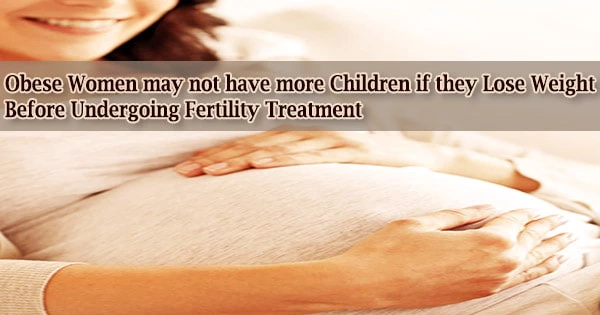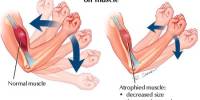Obese women are frequently advised to lose weight before attempting to conceive or beginning infertility treatments. However, a new nationwide study sponsored by Penn State College of Medicine indicated that women with obesity and unexplained infertility who dropped weight before commencing infertility treatments had no better probability of having a healthy baby than those who did not.
Obesity is projected to affect 40% of American women between the ages of 20 and 40, and has been linked to difficulty conceiving, pregnancy difficulties, and loss. As a result, those women are frequently advised to lose weight prior to conception in order to improve their chances of producing a healthy kid.
Dr. Richard Legro, professor, and chair of the Department of Obstetrics and Gynecology at Penn State Health Milton S. Hershey Medical Center led a multi-center National Institutes of Health-funded study of over 300 women with obesity and unexplained infertility to see if targeted weight loss before fertility treatments could improve their chances of having a healthy baby.
Participants had to have a BMI of 30 kg/m2 or more, regular ovulation, and at least one year of unexplained infertility to qualify. Women with anovulation, in which an egg does not release from the ovary during the menstrual cycle, and polycystic ovary syndrome, in which women have irregular or atypical menstrual cycles as a result of hormone imbalance in the ovaries, were excluded from the study.
Two groups of participants were formed. The members of one group followed a program that included increased physical activity as well as targeted weight loss via meal replacements and medication, while the members of the other group increased their physical activity without being instructed to lose weight.
Although it differs from current clinical standards of care, there’s just not enough evidence to recommend preconception weight loss in women with obesity and unexplained infertility.
Dr. Richard Legro
These sessions were completed for 16 weeks before the women began three rounds of infertility treatment, which included ovarian stimulation and intrauterine insemination.
The researchers found no significant changes in the number of pregnancies and healthy newborns between the two groups at the end of the study period. The members of the guided weight reduction group dropped an average of 7% of their body weight, while the remaining participants lost no weight at all. The findings were published in the journal PLOS Medicine on 18th January 2022.
The findings, according to Legro, add to a growing body of evidence showing healthy births are not more likely to occur in obese women who lose weight before beginning infertility treatment than in women who do not reduce weight before conception.
“Although it differs from current clinical standards of care, there’s just not enough evidence to recommend preconception weight loss in women with obesity and unexplained infertility,” Legro said.
While losing weight may not boost a woman’s chances of having a healthy baby, the researchers observed that there may be other health benefits for these women. The blood pressure of several of the women in the weight loss group was lower, and their waist circumference was smaller.
Karl Hansen and Robert Wild of University of Oklahoma Health Sciences Center; Michael Diamond of Augusta University; Anne Steiner and Jennifer Mersereau of University of North Caroline, Chapel Hill; Christos Coutifaris and Kurt Barnhart of University of Pennsylvania; Marcelle Cedars of University of California at San Francisco; Kathleen Hoeger of University of Rochester; Rebecca Usadi of Atrium Health; Erica Johnstone of University of Utah; Daniel Haisenleder of University of Virginia Center for Research in Reproduction; J.C. Trussell of SUNY Upstate University Hospital; Stephen Krawetz of Wayne State University; Penny Kris-Etherton of Penn State College of Health and Human Development; David Sarwer of Temple University; Nanette Santoro of University of Colorado School of Medicine; Esther Eisenberg of Eunice Kennedy Shriver National Institute of Child Health and Human Development; and Hao Huang and Heping Zhang of Yale University also contributed to this research. Competing interests from authors can be viewed in the manuscript.
The Eunice Kennedy Shriver National Institute of Child Health and Human Development funded this study. The National Center for Advancing Translational Sciences of the National Institutes of Health also supported this project, as did the Penn State Clinical and Translational Science Institute and the Yale Center for Clinical Investigation. Discounts on study materials were also provided by Nutrisystem and Fitbit.
















